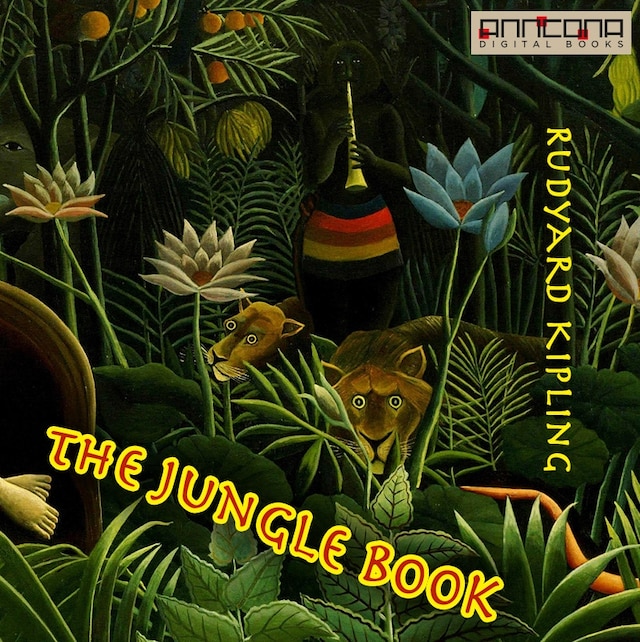
The Jungle Book
Description of the book
The Jungle Book (1894) is a collection of stories by Rudyard Kipling.
The tales in the book and also those in The Second Jungle Book which followed in 1895, and which includes five further stories about Mowgli, are fables, using animals in an anthropomorphic manner to give moral lessons. The verses of The Law of the Jungle, for example, lay down rules for the safety of individuals, families and communities.
Kipling put in them nearly everything he knew or "heard or dreamed about the Indian jungle." Other readers have interpreted the work as allegories of the politics and society of the time. The best-known of them are the three stories revolving around the adventures of an abandoned "man cub" Mowgli who is raised by wolves in the Indian jungle. The most famous of the other stories are probably "Rikki-Tikki-Tavi", the story of a heroic mongoose, and "Toomai of the Elephants", the tale of a young elephant-handler. As with much of Kipling's work, each of the stories is preceded by a piece of verse, and succeeded by another.
Joseph Rudyard Kipling (1865-1936) was an English short-story writer, poet, and novelist chiefly remembered for his tales and poems of British soldiers in India, and his tales for children. He was born in Bombay, in the Bombay Presidency of British India, and was taken by his family to England when he was five years old. Kipling is best known for his works of fiction, including The Jungle Book (a collection of stories which includes "Rikki-Tikki-Tavi"), Just So Stories (1902), Kim (a tale of adventure) (1901), many short stories, including "The Man Who Would Be King" (1888); and his poems, including "Mandalay" (1890), "Gunga Din" (1890), "The White Man's Burden" (1899) and "If—" (1910).
He is regarded as a major "innovator in the art of the short story"; his children's books are enduring classics of children's literature; and his best works are said to exhibit "a versatile and luminous narrative gift".
Henry James said: "Kipling strikes me personally as the most complete man of genius (as distinct from fine intelligence) that I have ever known." In 1907 he was awarded the Nobel Prize in Literature, making him the first English-language writer to receive the prize, and to date he remains its youngest recipient.
Categories:
Language:
English




